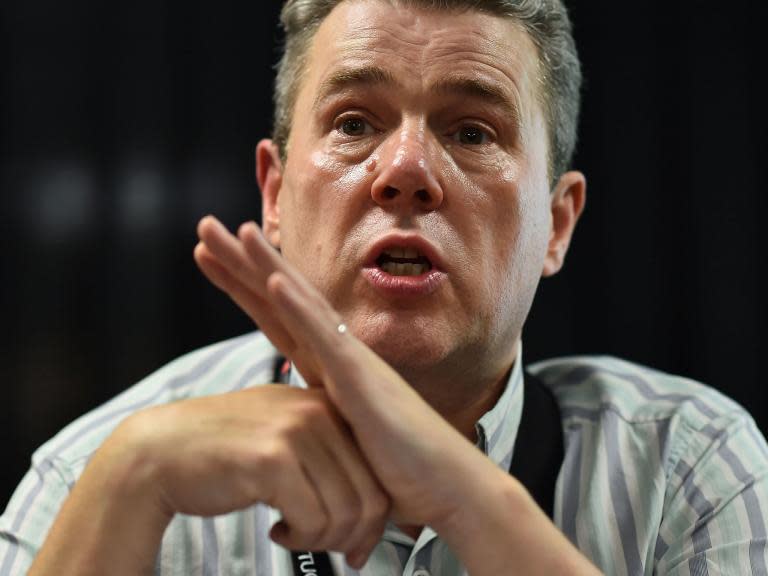Mark Serwotka's inopportune intervention will only deepen Labour's crisis over antisemitism
The words themselves, standing on their own, are the kind of thing that a crank might come up to someone in a pub and mutter behind his hand: “I’m not a conspiracy theorist but I’ll tell you what – one of the best forms of trying to hide from the atrocities that you are committing is to go on the offensive and actually create a story that does not exist for people on this platform, the trade union movement or, I have to say, for the leader of the Labour Party.”
Were they not so woefully self-incriminatory, and about the Labour antisemitism row, a serious matter, they might even be judged parodic. Were they not uttered by the leader of a major trade union, the Public and Commercial Services Union (PCS), representing about 200,000 civil servants, they might be dismissed as irrelevant. Were they not said by Mark Serwotka, long-term ally and friend of Jeremy Corbyn, we might also dismiss them as fringe lunacy.
The timing could hardly be less opportune or, in a way, better. Inopportune because they feed, quite powerfully, into the debate about antisemitism in the Labour Party. The notion of the Israeli government creating false stories about British politics in order to deflect attention from its own “atrocities” – a particularly powerful word in this context – is the stuff of historical antisemitic tropes. If Mr Serwotka is a dedicated anti-racist, he should at least ask himself why he has fallen into this manner of thinking.
The Labour Party, and the wider Labour movement too, has some thinking of its own to do. It is one thing to, belatedly, adopt the International Holocaust Remembrance Alliance definition of antisemitism in its entirety, and to pledge action to root out the problem. But it is worth investigating why the genuine passion many feel about the plight of the Palestinian people and, again justified, outrage at the actions of the Israeli defence forces has transmuted into this sort of fantastical nonsense. Why do such ideas have such currency at all levels of the Labour Party?
It is not enough, and never will be, to accuse Labour’s critics of double standards, even if they exist.
It is clear that British Conservative MEPs did themselves a grave disservice this week in being the only representatives in the European parliament to defend the Hungarian premier, Viktor Orban, from censure over his own assaults on civil liberties. Many view Mr Orban as an antisemite, and a dangerous one. The politics of Brexit provides neither a reasonable explanation nor an excuse. Theresa May should explain and apologise for what her MEPs have been up to – and discipline them too.
None of that, however, can undo the stupidity, at best, of Mr Serwotka’s remarks. They echo, far too convincingly, the traditional idea about an international a Jewish (or Zionist) conspiracy – for how else would the Israeli state be able to propagate its falsehoods against Labour if not through allies or dupes in the media or the “establishment”? The implication seems clear enough for a man admitting that he is proposing a conspiracy theory.
On the face of it, and as a Labour Party member since Mr Corbyn allowed him back in, Mr Serwotka should be the first to be disciplined under the new definition of antisemtisim. In that sense, he spoke with impeccable timing; a moment for the Labour movement to act decisively, and add actions to its words.
In particular, Mr Serwotka seems to be at odds with this article in the IHRA’s definition: “Making mendacious, dehumanising, demonising or stereotypical allegations about Jews as such or the power of Jews as collective – such as, especially but not exclusively, the myth about a world Jewish conspiracy or of Jews controlling the media, economy, government or other societal institutions.”
At any rate, Mr Serwotka needs to explain himself. The ultimate irony is that he also asked the meeting he was addressing how on earth it came to be that Labour has spent the summer getting embroiled in an argument about antisemitism that it should never have had to deal with. Mr Serwotka could start by asking himself that same difficult question.


